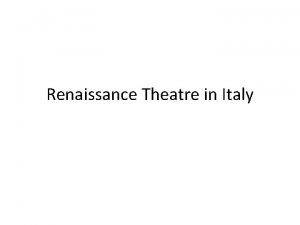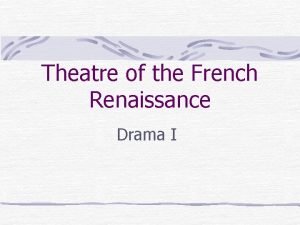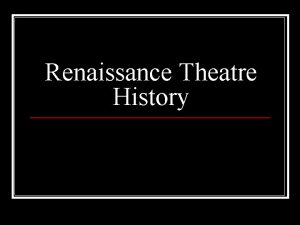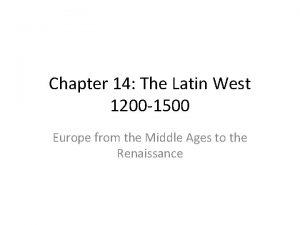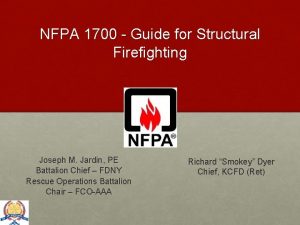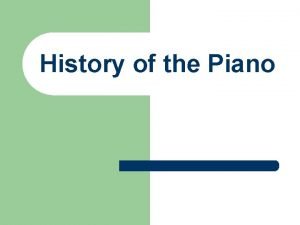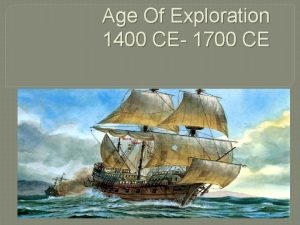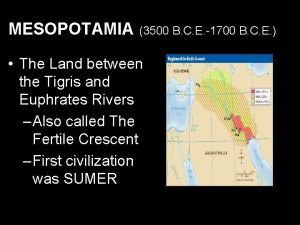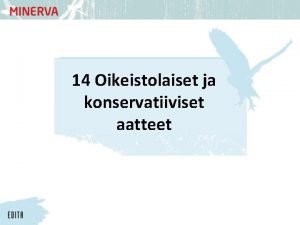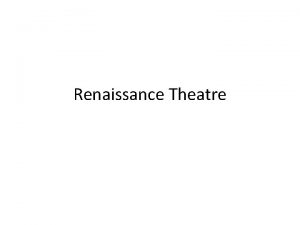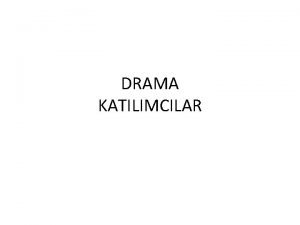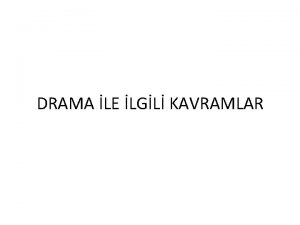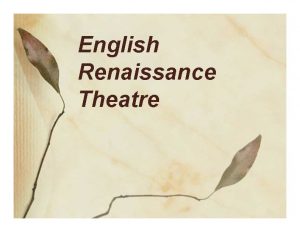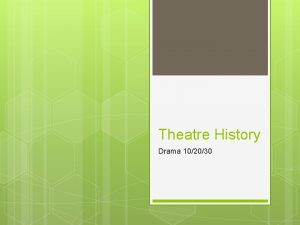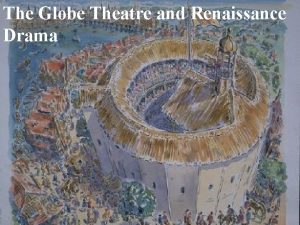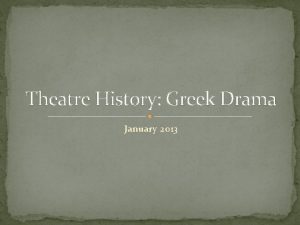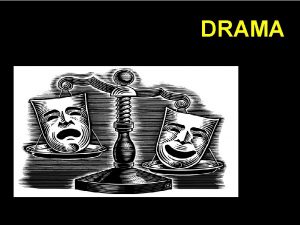Renaissance Theatre History Renaissance Drama 1500 1700 CE












- Slides: 12

Renaissance Theatre History

Renaissance Drama (1500 – 1700 CE) n Renaissance means rebirth of classical knowledge.

Italy: n Known more for stage equipment and scenery than great plays. n Ideas from Greek and Roman period blended to develop perspective paintings and colored lights.


Continued… n Street comedy started n n (Commedia Dell’Arte: improvised comedy: no script. ) Troupes: § n Had fixed or stock characters: § n Acting companies traveled from town to town presenting these comedies. Identified by costumes and masks (doctor, maid, clown, male servants). 15 th and 16 th Centuries developed interludes: one act farces.

Continued… n n n n Stock characters: - Harlequin- clown with diamond outfit - Pierrot- lovelorn and moody - Columbine- flirtatious and pretty - Pantalone- baggy trousers- gullible father or fool Characters all wore half-masks Popular across Europe- especially in France with the playwright- Moliere’

Continued… n n n A few works were serious, and some pastoral, but most were comic. The acting appears to have been natural though the actors needed good entrance and exit lines as well as repartee. Actors required great skill, physical dexterity, and timing, since much of humor was visual. Actors in commedia also had to dance, sing, and do acrobatics. Commedia dell’arte introduced women into theatre as equals.


France (late 1600 s): Returned to ideas of Aristotle: n Greek philosopher (considered first literacy critic). n n Three unities: § § § -One action -One day -One place Plays portraying heroes were popular. After French Revolution, Commedia Francaise established (comedies and farces). n n Led to the development of French professional theatre. Theatre further developed by the government under direction of Louis XIV (great supporter of the arts). Famous playwrights: n n Moliere and Racine

Moliere Racine

Moliere • • • greatest writer in France changed his name to protect family from disgrace of theatre connections acted in the commedia dell’arte wrote satires- humorous and caustic themes died on stage from TB while in the show THE IMAGINARY INVALID

n Next Week: Youtube https: //www. youtube. com/watch? v=600 CSMf Uhn. U
